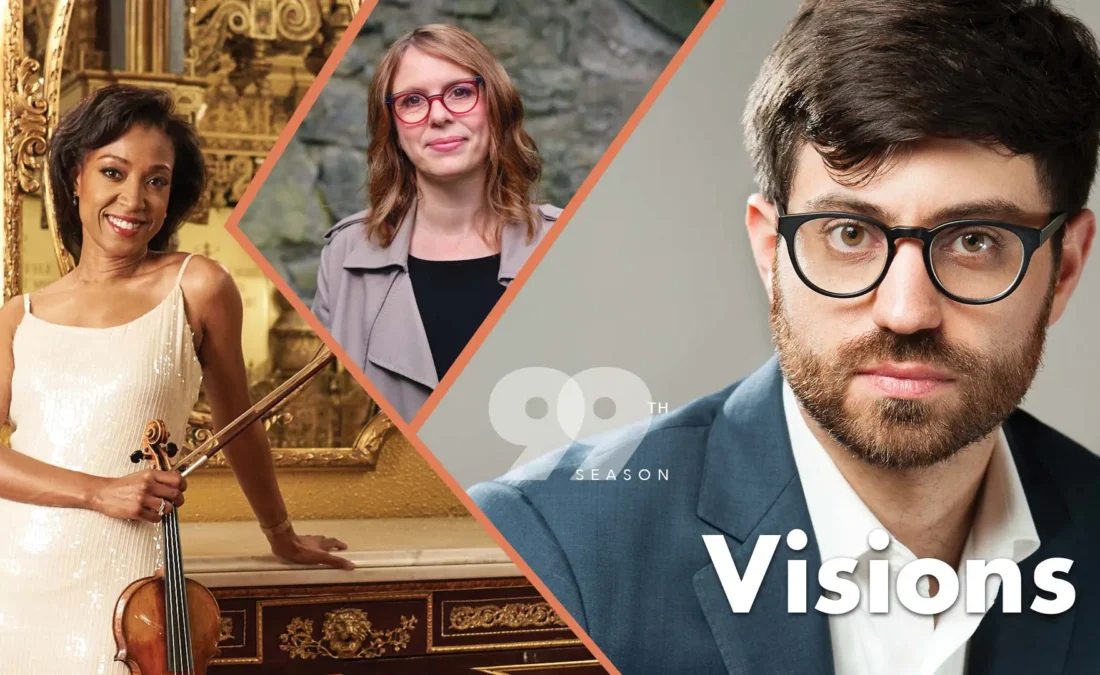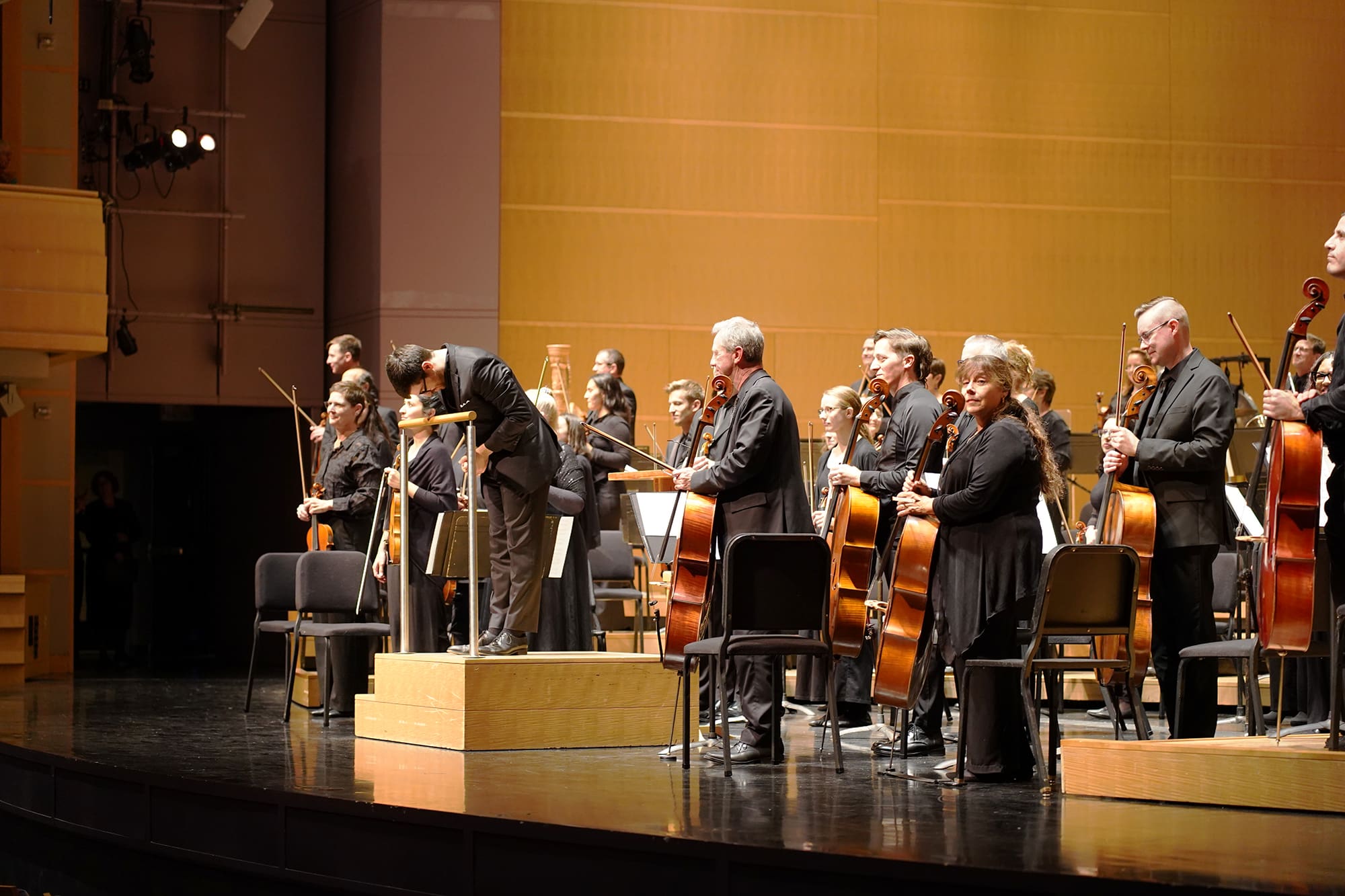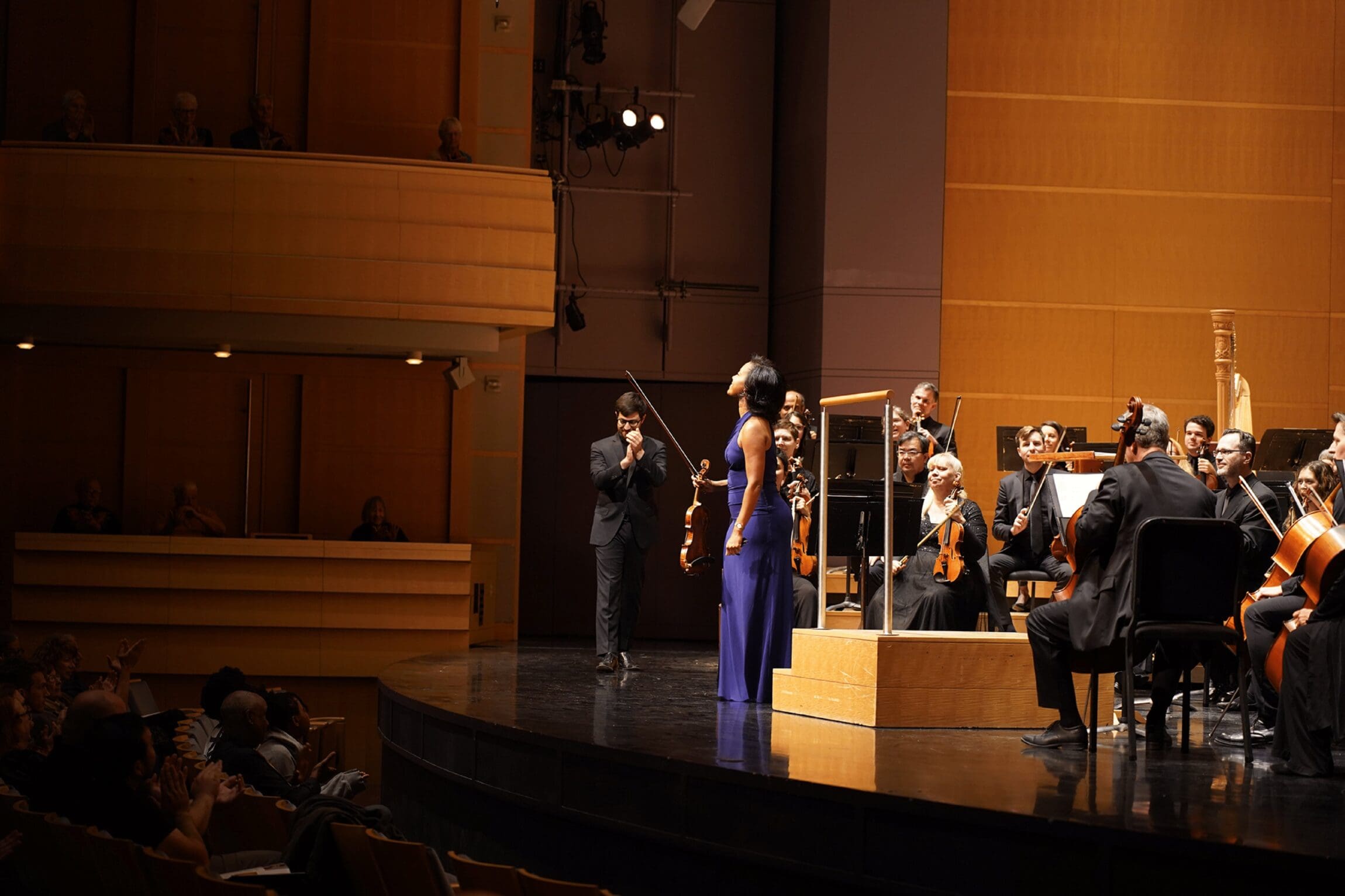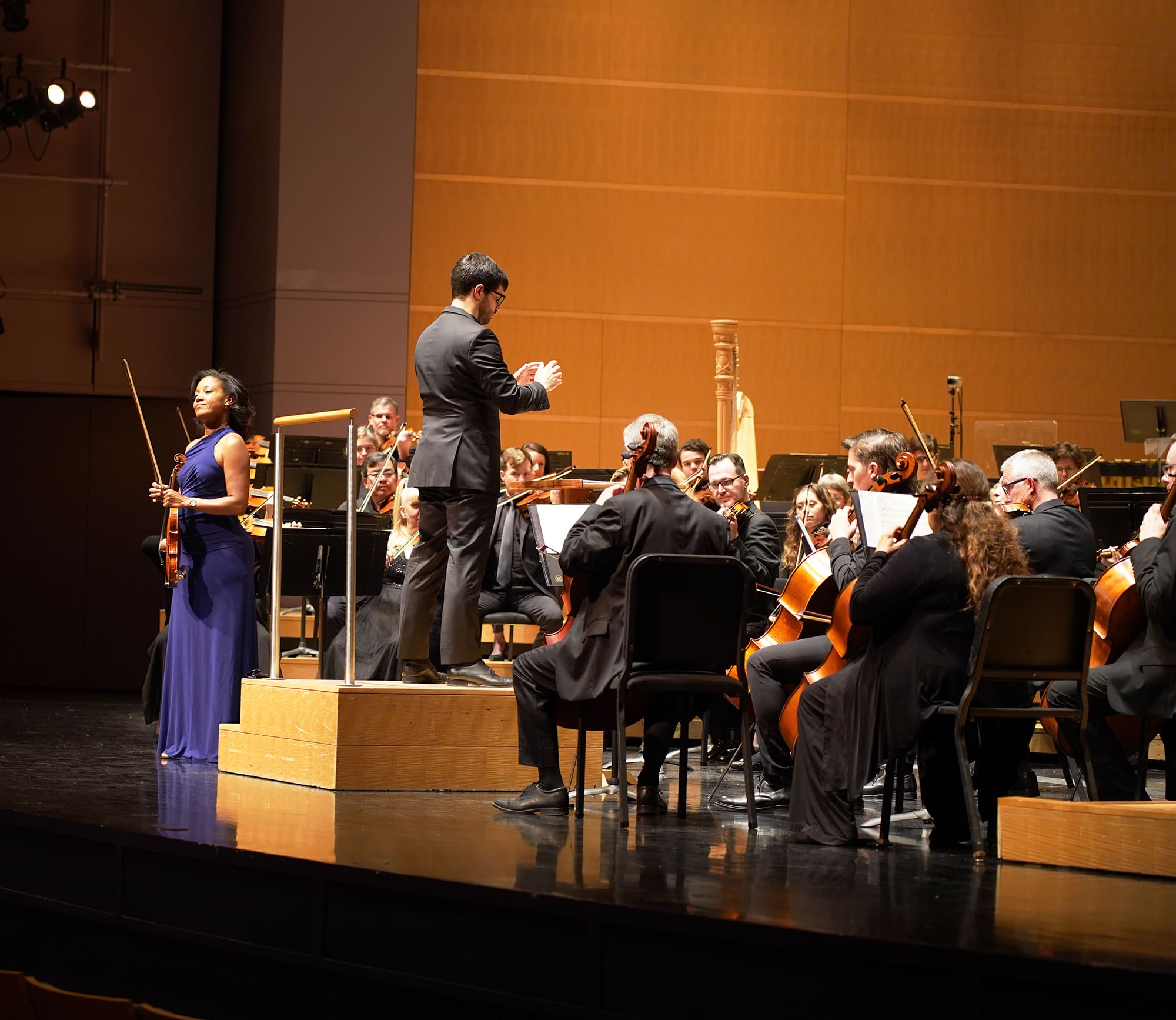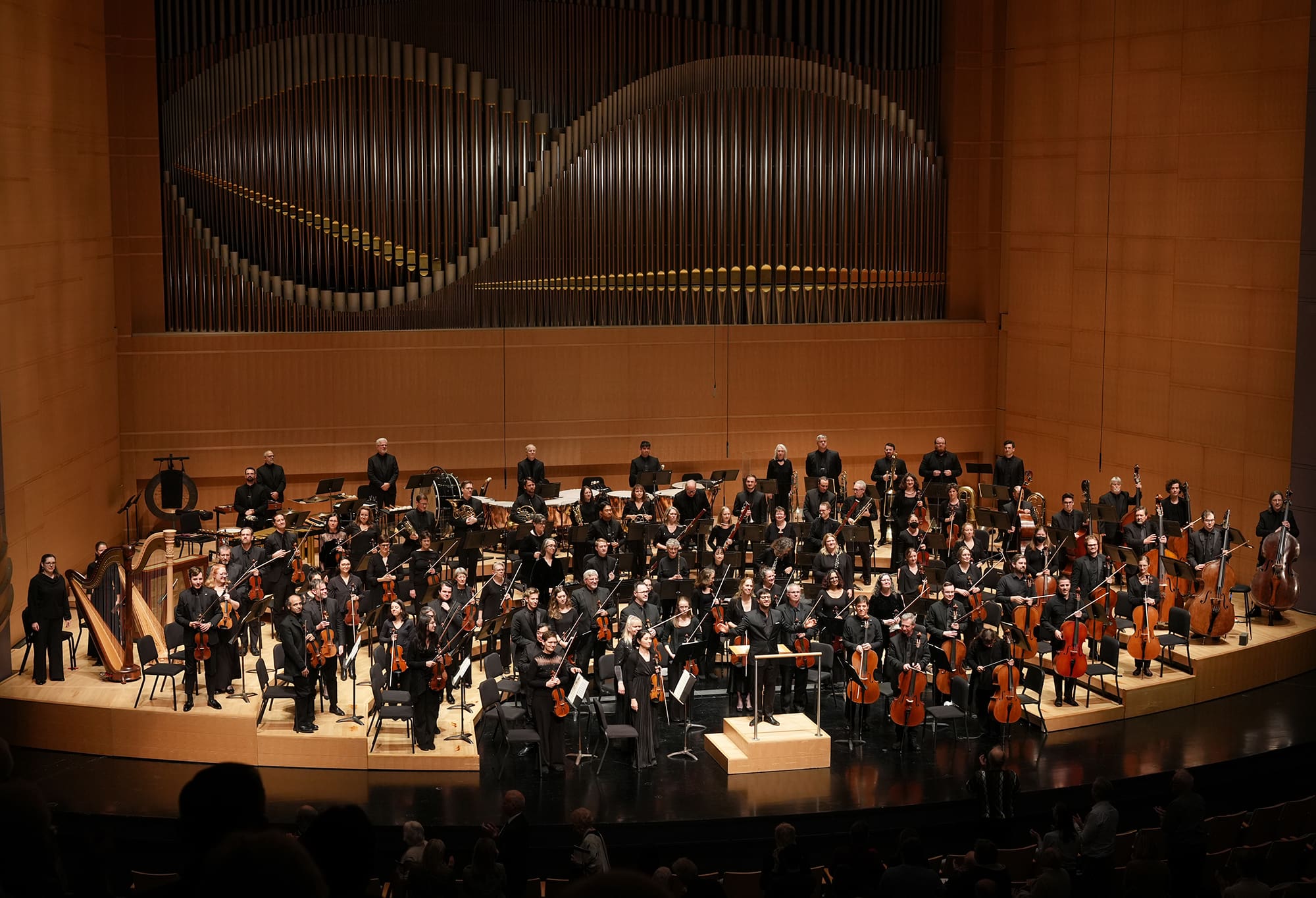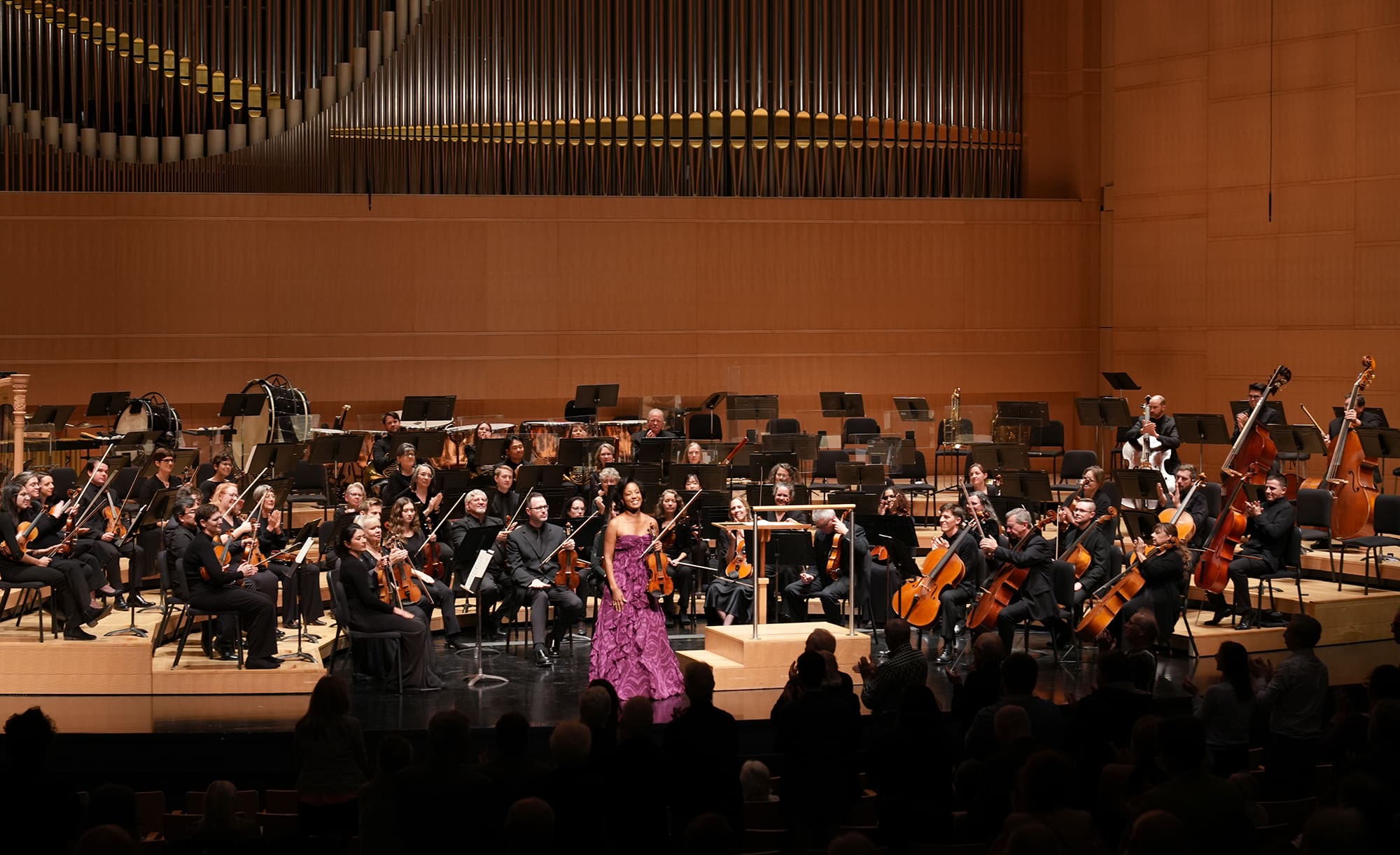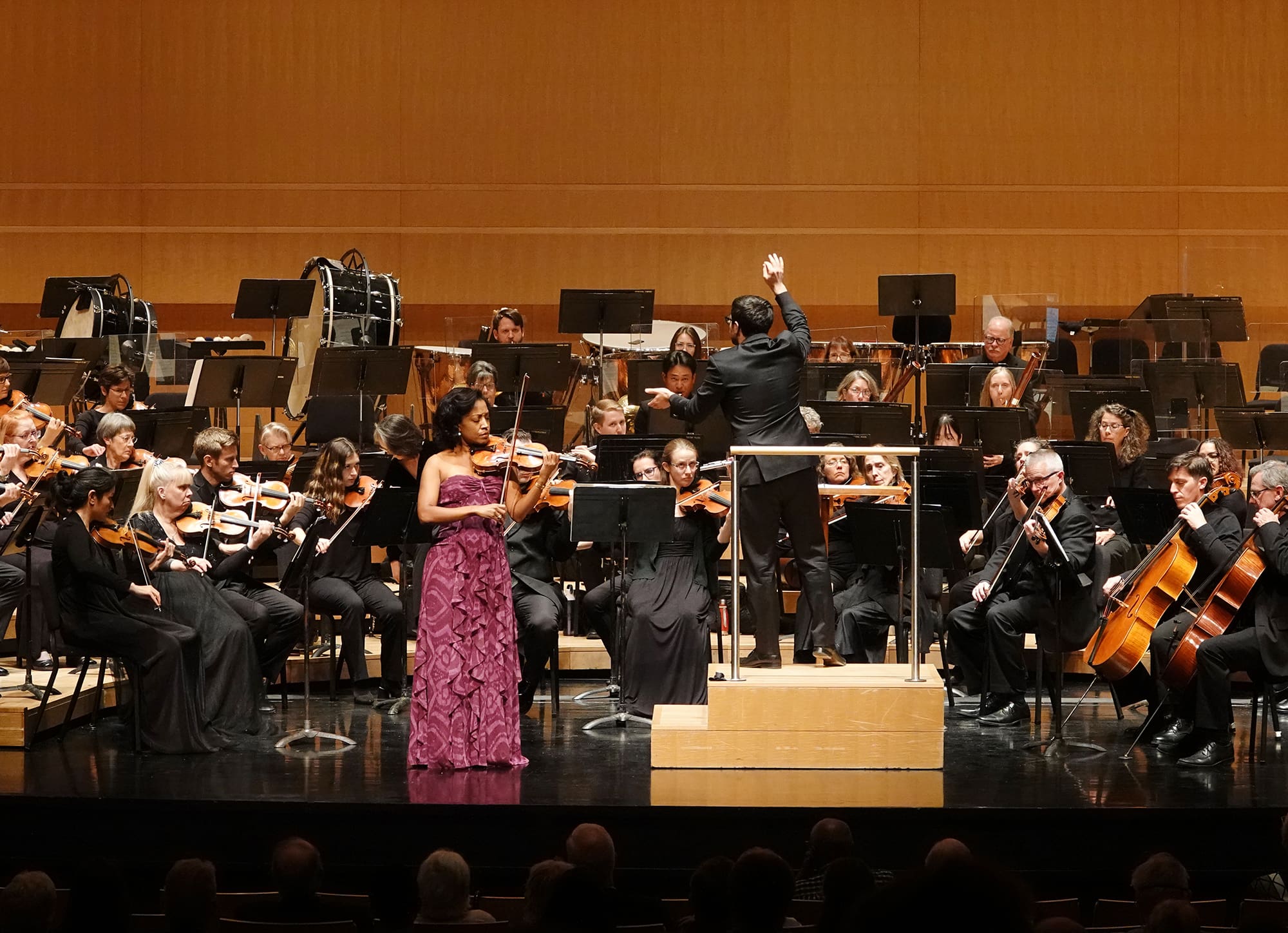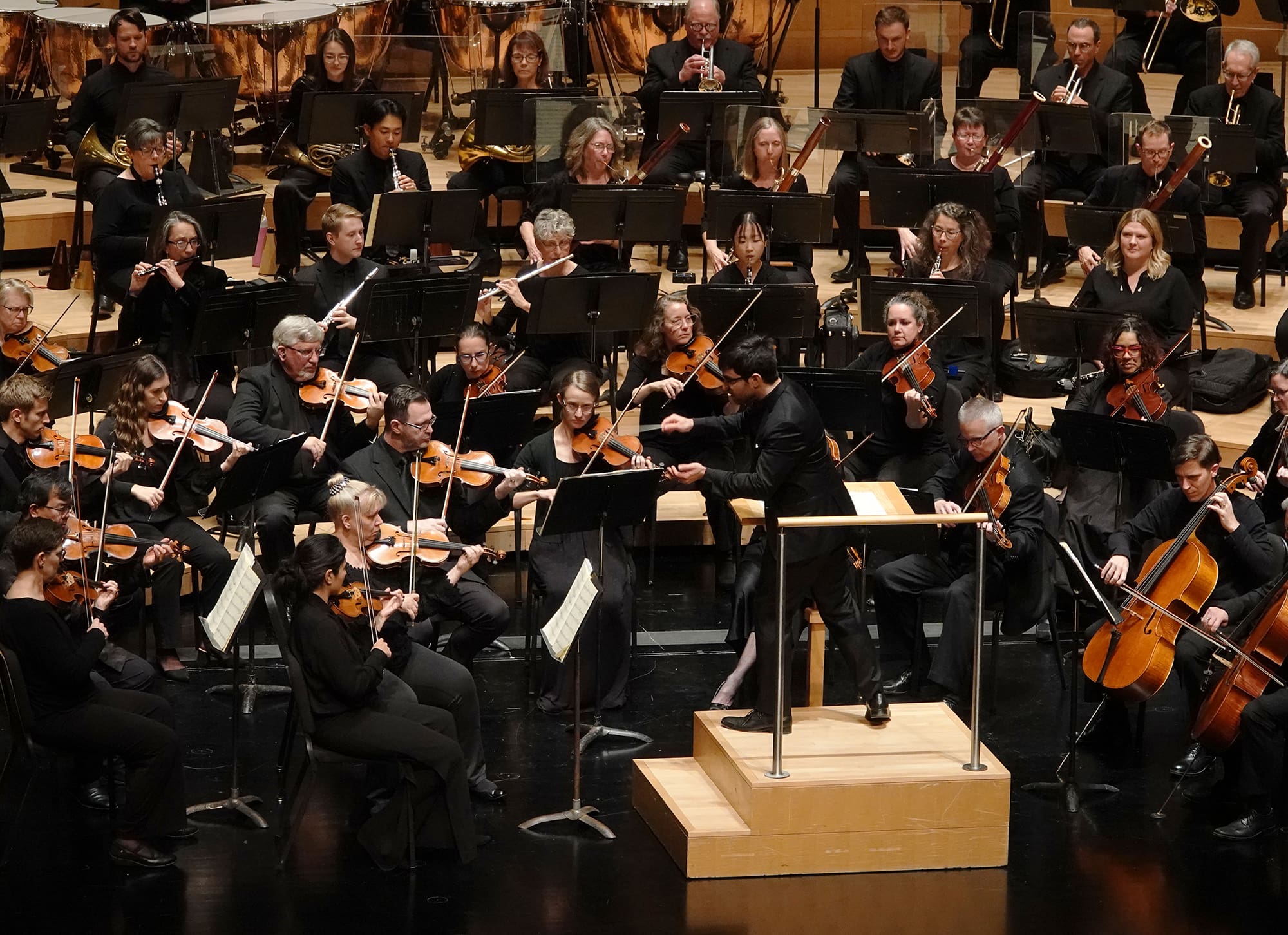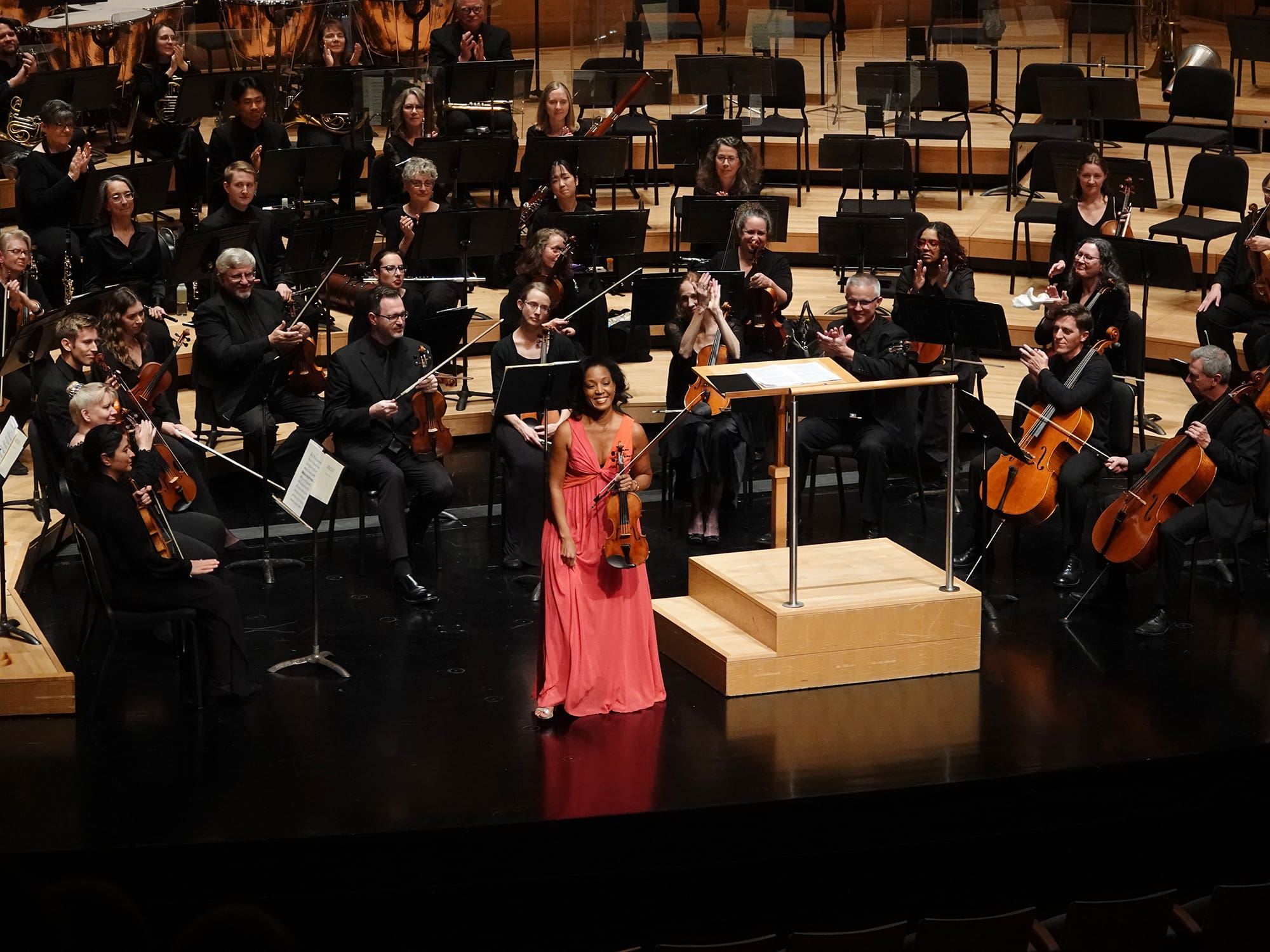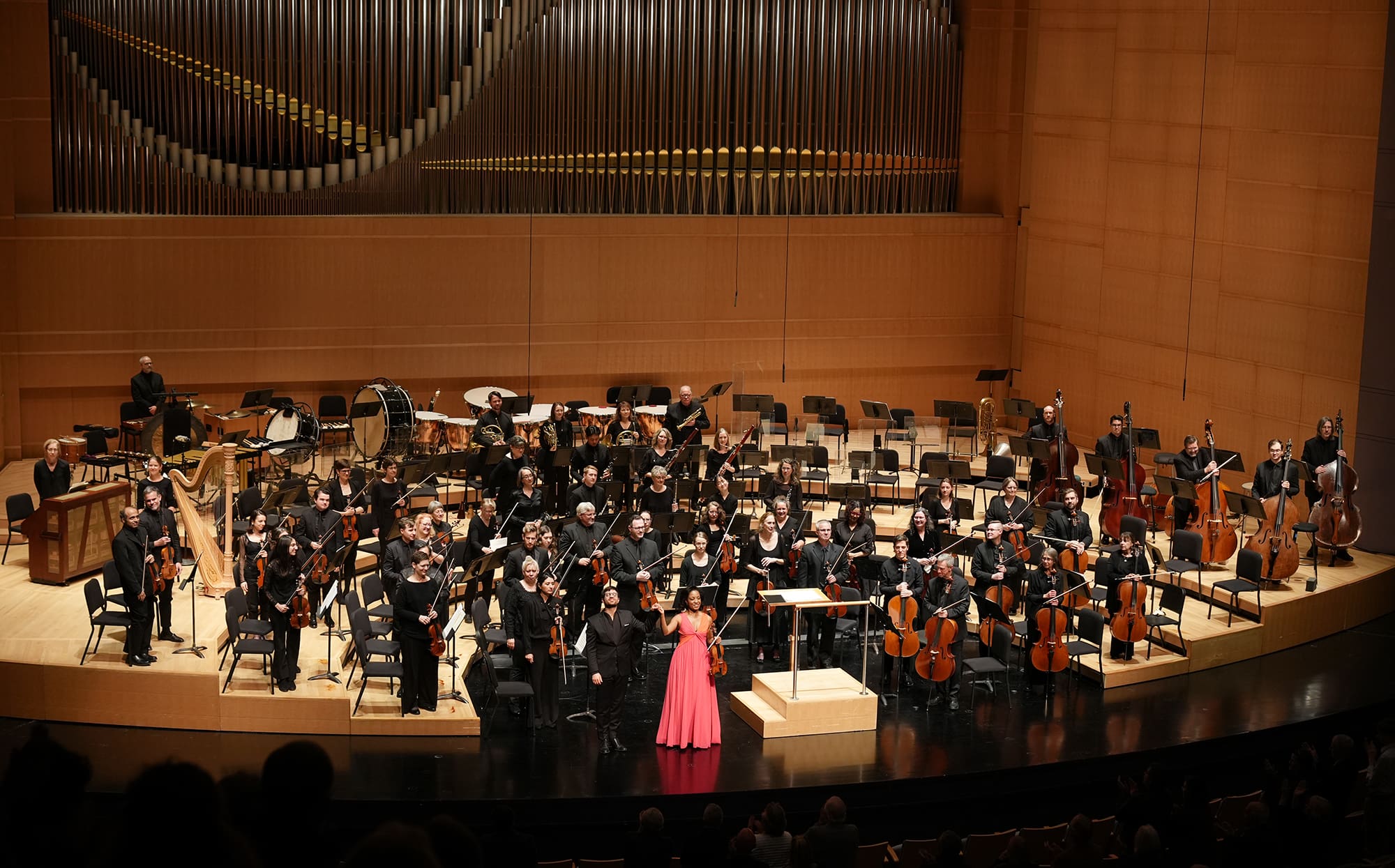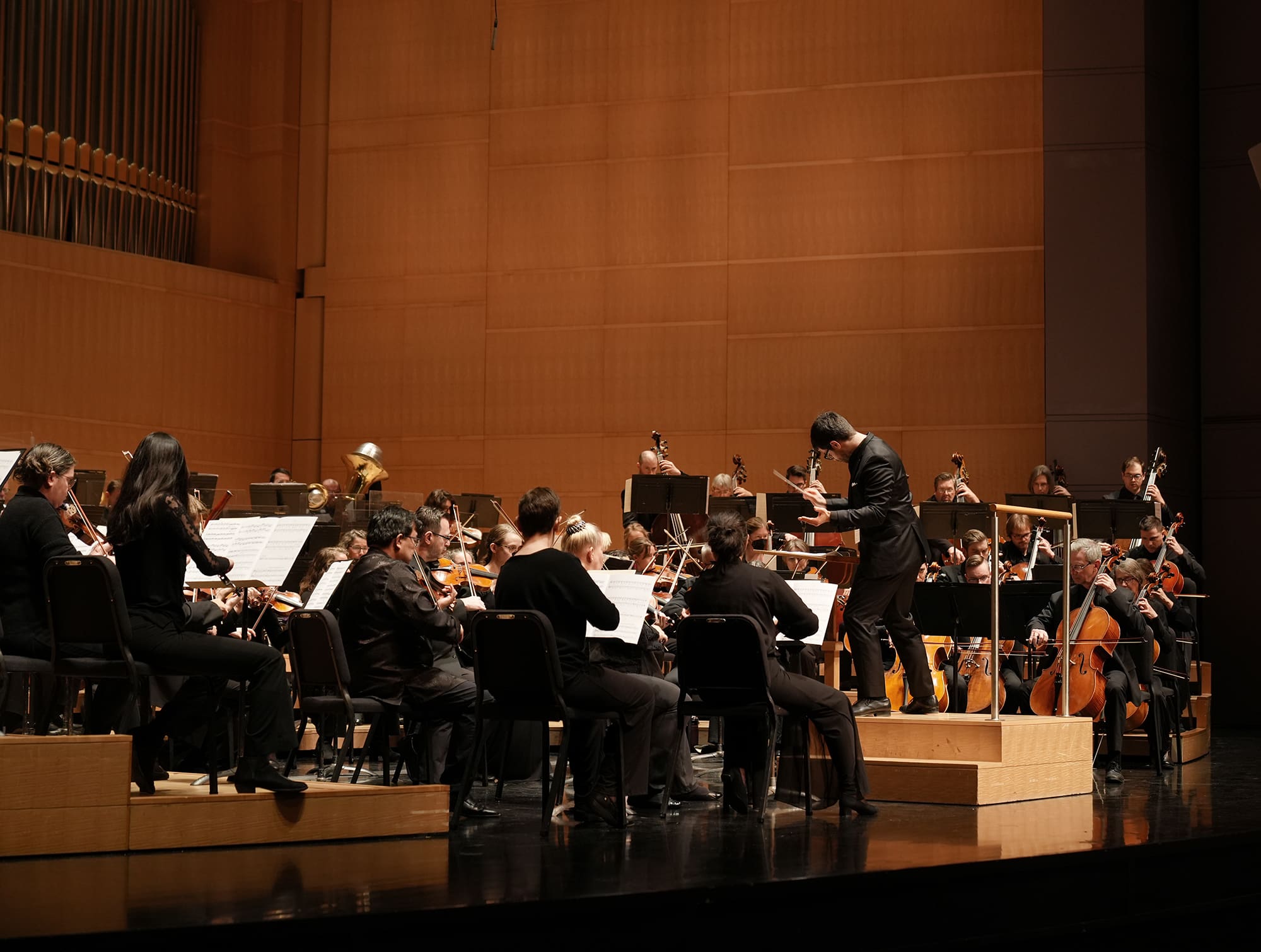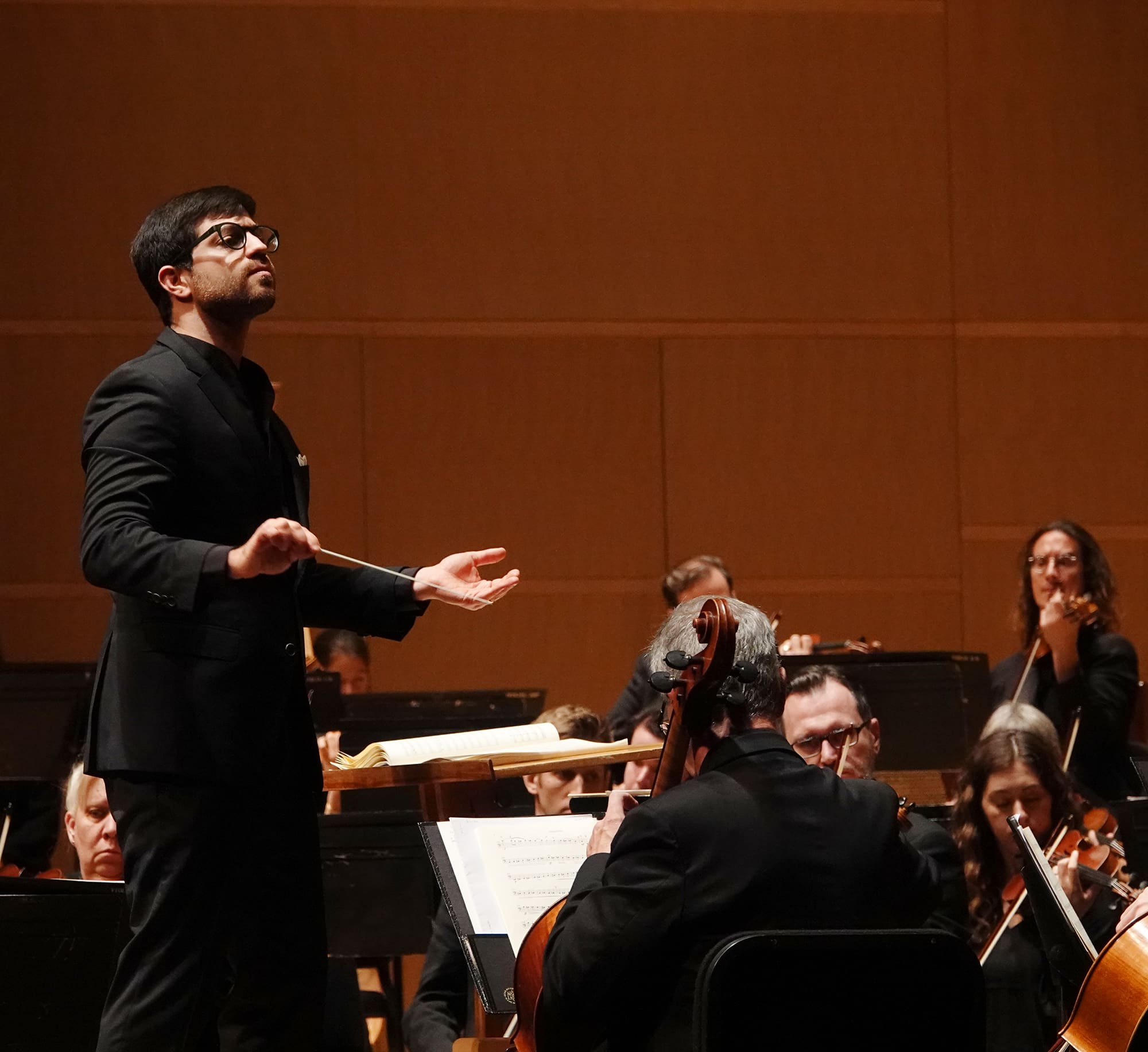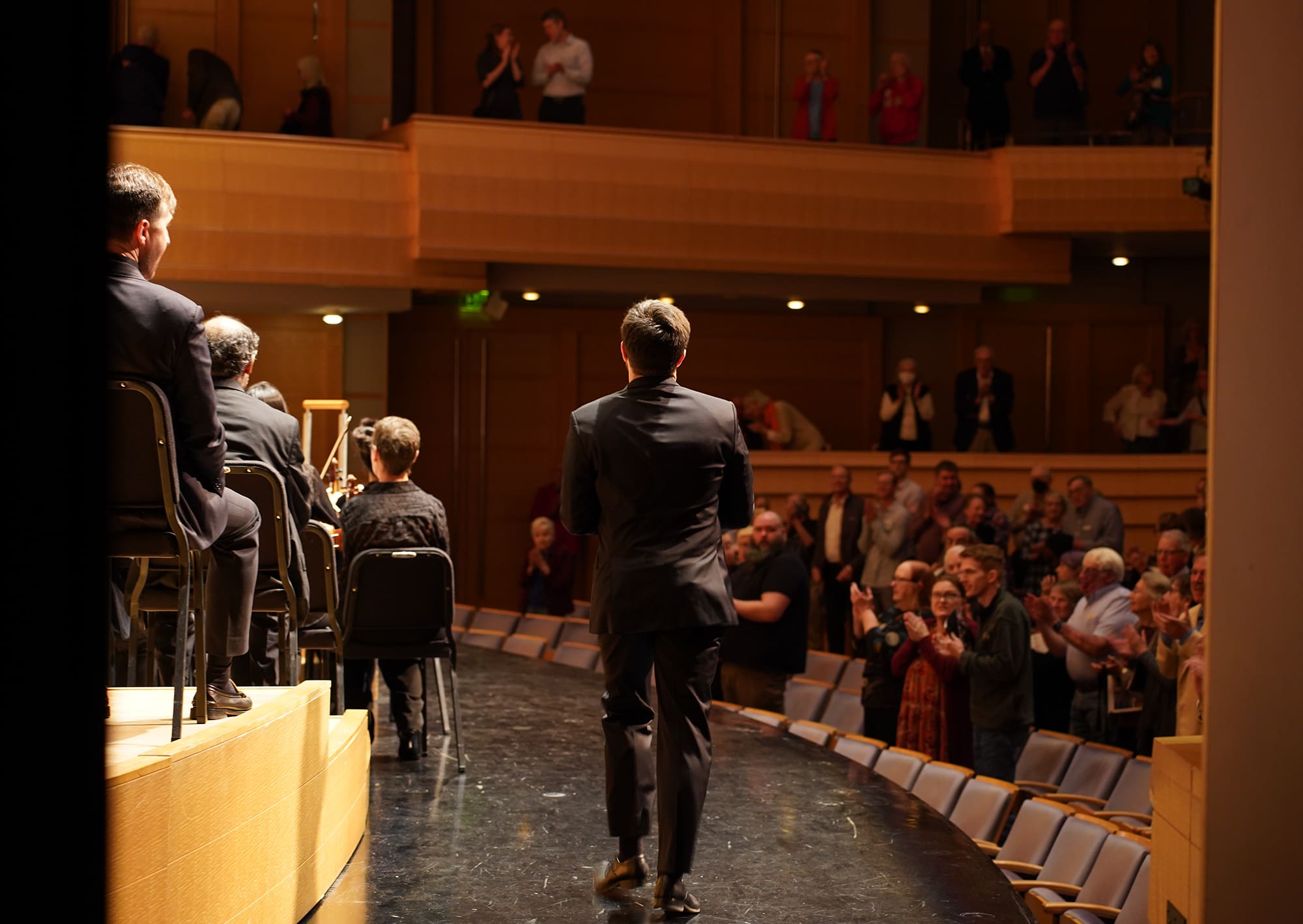The Madison Symphony Orchestra welcomed its first guest conductor of the season, Nicholas Hersh, to Overture Hall to perform the MSO debut of Anna Clyne’s This Midnight Hour. We also welcomed back violin soloist Kelly Hall-Tompkins to perform works by Vaughan Williams and Ravel. The weekend ended with an incredible performance of Hector Berlioz’s Symphonie fantastique. Read below for reviews and photos!
.
Madison Symphony Orchestra summons the supernatural in ‘Visions’
Noah Fellinger // Cap Times
The Madison Symphony Orchestra’s second concert of the 2024-’25 season, “Visions,” is a thrilling foray into dazzling dreamscapes and narcotic nightmares. Led by a potential successor to maestro John DeMain, guest violinist Kelly Hall-Tompkins left Overture Hall spellbound on Friday evening.
Guest conductor Nicholas Hersh opened the concert with “This Midnight Hour,” an imaginative, spine-chilling piece composed by Anna Clyne in 2015. In writing “This Midnight Hour,” Clyne intended to evoke imagery from two poems, “La Musica,” by Juan Ramón Jiménez, and “Harmonie du soir” (“Evening Harmony”) by Charles Baudelaire.
The strings begin the piece by instigating a chase punctuated by interjections from the woodwinds. For a moment, the trumpets and flutes cut the tension with a soaring, melodic rebuttal before unravelling into discord. A mysterious gothic waltz emerged, featuring dual trumpet solos trading a series of somber melodies.
The MSO’s performance of “This Midnight Hour” contained exquisite sonic texture and seemingly effortless expression. It was an inspired choice for principal trumpet John Aley and trumpeter John Wagner to deliver their solos standing at opposite corners of the stage, which lent each a sense of isolation.
The MSO played Ralph Vaughan Williams’ “The Lark Ascending” and Maurice Ravel’s “Tzigane” back-to-back. Both composed for violin and orchestra in the early 1920s, the two pieces were a natural pairing which served as a stunning showcase of guest violinist Kelly Hall-Tompkins’ considerable talent.
“The Lark Ascending” began with a fluttering solo by Hall-Tompkins laced with delicate bow strokes. The orchestra met this with a warm embrace, leading into a sweet, folksy lullaby.
“Tzigane” — which attempts to capture the essence of Roma fiddling — picked up with another solo by Hall-Tompkins, this one teeming with frenetic energy. Throughout “Tzigane,” Hall-Tompkins produced a startling diversity of sounds. At times, she managed to channel a percussive quality. It was difficult to believe she played just one instrument that evening.
Read the full review on The Cap Times’ website
.
.
MSO Features Two Performers: Violinist and Conductor
Bill Wineke // Madison Independent Arts Review
The Madison Symphony Orchestra opened its second performance of the season Friday night at the Overture Center, but conductor John DeMain was not at the podium.
That in itself is not unusual. The MSO regularly welcomes guest conductors for its subscription concerts.
What makes this weekend’s concerts a little different is that DeMain has announced his retirement at the conclusion of the MSO’s 100th anniversary season in 2026 and the organization is looking at possible successors.
More than 100 musicians have asked to be considered for the job.
One of the candidates is Nicholas Hersh, Music Director of the Modesto Symphony, who is leading this weekend’s concerts.
He is joined by violinist Kelly Hall-Tompkins, founder of Music Kitchen – Food for the Soul, which has performed concerts for people in homeless shelters throughout the United States.
That designation makes Hall-Tompkins interesting but doesn’t really do justice to her astonishing talent.
She performed “The Lark Ascending” by Ralph Vaughan Williams and “Tzigane” by Maurice Ravel.
“The Lark Ascending” is a quiet work – Michael Allsen, who writes the symphony notes, calls it “an exercise in serenity” – that sometimes becomes so quiet it is difficult to hear the violin play. “Tzigane,” on the other hand, is a boisterous work that calls on the full range of the artist’s ability.
Hall-Tompkins breezed through both pieces with ease. I suspect she will be one of the musicians who makes frequent appearances in Madison. If you have the opportunity, you really ought to purchase tickets for either the Saturday night or Sunday afternoon programs.
In addition to the Vaughan Williams and Ravel pieces, the concert featured a brief introduction,”This Midnight Hour,” by Anna Clyne and a symphony, “Symphonie Fantasique” by Hector Berlioz. Allsen calls it “perhaps the prototypical romantic program symphony,” which means, basically, that the symphony tells the story of Berlioz’ obsessive love for an English actress.
The main thing to know about this work, I think, is that it is precision-demanding on the orchestra. The music moves from full-speed ahead to dead stop in instants and the musicians are called upon to make sounds their instruments don’t usually make.
What that means for a guest conductor is that he must form a fast communication with an orchestra he met just days ago.
Judged by that standard, among others, Hersh more than met the goal. I was intrigued by his hands because at some points the music seemed to flow from his fingers to the orchestra.
Hear what the audience had to say…
“Have heard Symphonie fantastique many times but this performance was one of the most engaging. Totally caught me. Loved Mr. Hersh’s attention and seemingly love of this piece.”
“Ms Hall-Tompkins was extraordinarily engaging and accomplished. She’s a terrific violinist who performed one of our favorite pieces, Vaughan Williams’ “Lark,” brilliantly. Berlioz came in a close second.”
“The Anna Clyne work was amazing. I was ready to listen to it again…splendid, inventive, complex. Wonderful that a guest conductor could pull off a significant contemporary work in a short week of rehearsals.”
“I continue to find inspiration in the performances of the ‘everyday’ musicians. Flowers on English Horn. Koh on Clarinet. The harpists. The tympanists. Such great playing.”
“I was looking forward to the violin soloist but not totally sure about the other pieces and was, for whatever reason not feeling like going out on Friday night but I was so glad that I did! I loved the entire concert together and each piece individually. It was a wonderful concert–especially the Symphonie Fantastique, which was so well executed and just thrilling to hear live…and I enjoyed the energy of the conductor.”
“Ms. Hall-Tompkins was wonderful and I hope to hear more of her playing. And Mr. Hersh seemed to bring out the best in the orchestra on a varied and interesting program.”
“I am so proud that the Symphony is part of my city!”

